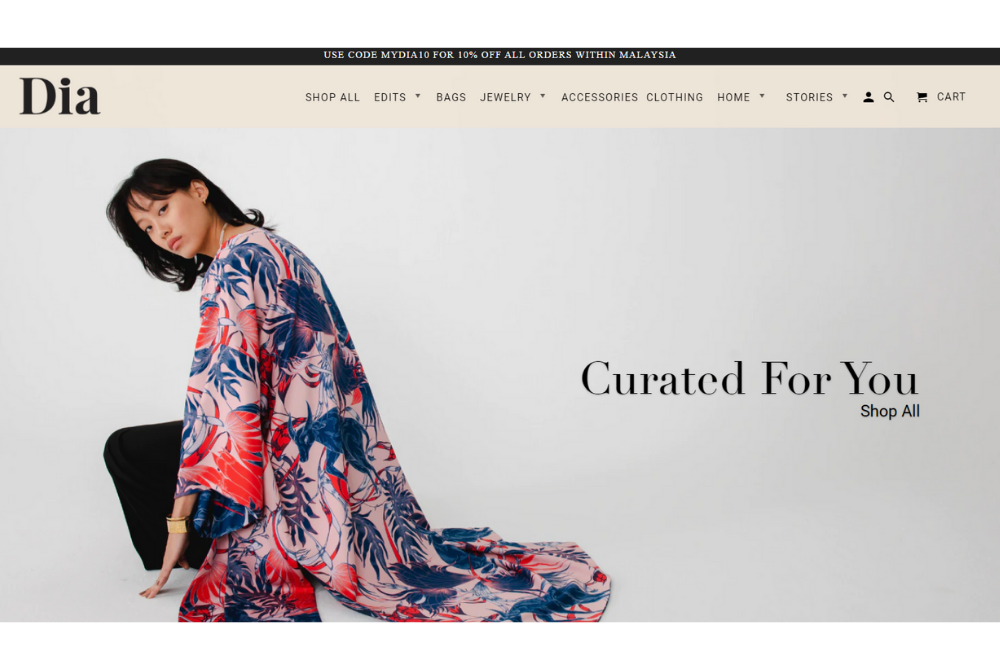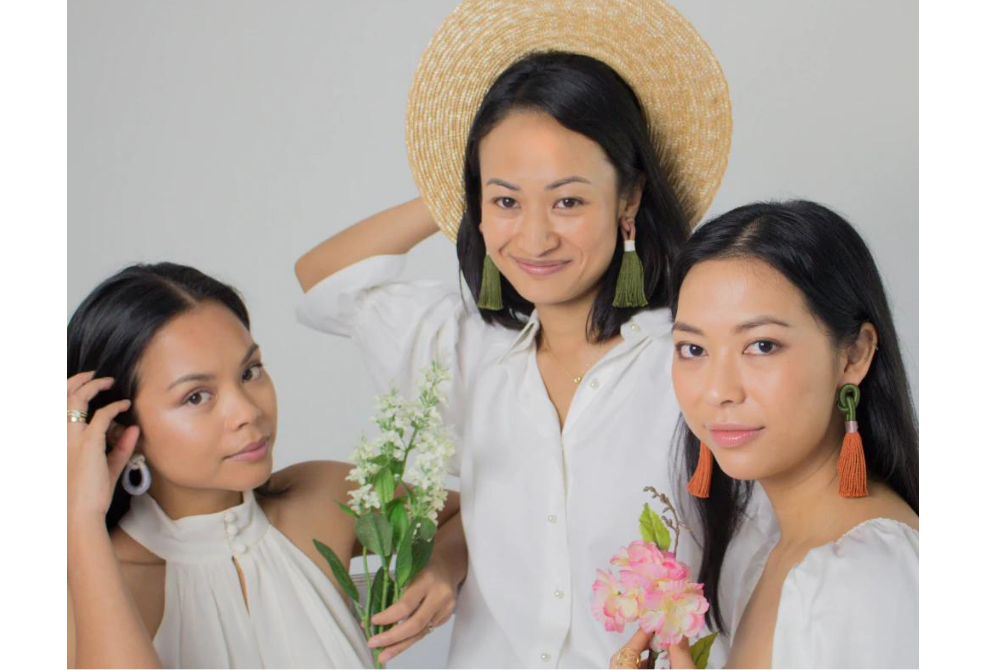Dia - Championing artisanship from Southeast Asian designers through circular fashion
SITI NURFATIHAH PIRDAUS
The local fashion scene can be seen slowly adapting to a greener future as the demand for slow fashion and conscious consumption has been increasing not only all over the world, but also Malaysia.
With the effects of climate change rearing its head in the past few years, it is time for the community to be aware that mass production and fast fashion is not a great way for brands to reduce carbon copy.
Thanks to the outsized influence of the consumer in today’s digital age who expects more of brands and designers, brands are forced to reevaluate their business models and are incorporating processes throughout their supply chains which positively affects all stakeholders involved – from using eco-friendly materials to fairly compensating and giving credit to their skilled workers.
This means that the local brands have started to move forward in changing their core towards sustainable fashion and this is no different for DIA, a curated platform that introduces Southeast Asian brands and reintroduces the depth of creativity and thought that goes into every product.
They are very adamant to provide a thoughtful customer experience through their curation and service, while also giving context and credit to the workmanship and people behind every piece they feature.
Founded by three Malaysian friends in 2020, Kylie Francis, Alia Farouk, and Aisha Hassan explained that categorising their platform and products with the term ‘sustainable’ or ‘sustainability’ is a dangerous game that they try to avoid and there are a few reasons for that.

“Firstly, it’s an umbrella term that has become a buzzword that’s both vague and encompasses too much; we are wary of greenwashing and prefer to lean into the specifics of what we’re trying to champion.
“Secondly, energy will always be consumed in the production, consumption, and transportation of goods — sustainability as a blanket label thus feels unrealistic, although we constantly strive to create a retail culture that is as mindful as possible of the different stages in the supply and demand chain,” Alia and Aisha said in an interview with Sinar Daily.
However, customers have nothing to be worried for since DIA aims to achieve this in different ways.
On the supply side, they work with small-scale producers who typically employ traditional or handmade methods, which ensure that the production process is less wasteful.
More than that, their partners prioritise their artisans’ livelihoods or are artisans themselves, and fair compensation for artisanship is vital.
Some of their brands, such as MANAVA and Fugeelah, are also social enterprises in and of themselves, so DIA has faith in them that their products are directly giving back to marginalised communities.
For a company which prefers not to be called a sustainable brand, Aisha surprisingly revealed that circular fashion is right up their alley as they worked with a number of brands whose products centre around recycled or upcycled materials.
Circular fashion has been popular in the fashion scene as the ‘closed-loop’ systems, or manufacturing approaches aiming to recover discarded materials and waste, and reintegrate them into production.
“Some of our most popular partner brands within the Malaysian market are brands that are all about repurposing resources, for example, ALT, a jewellery brand from Singapore that creates bold, beautiful, statement pieces that are crafted from old bullet casings from the Vietnam War.
“We also have SOPHIA by Shirley, a Malaysian brand that upcycles vintage Japanese kimono fabrics and transforms them into one-of-a-kind handcrafted handbags. The change in consumer behaviour has spurred innovation and re-lit the fire of creativity in both existing and up and coming brands – all in consideration of our planet and the people in it too,” she said.
Dia is a local fashion platform that aims to champion artisanship from Southeast Asian designers who fused heritage craftsmanship into their designs.
Having started with only 7 partner brands, they have now expanded to featuring just under 30 brands from 6 different countries: Malaysia, Singapore, Cambodia, Thailand, Indonesia and Philippines.
With the relatively recent but critical shift towards conscious consumption, their hope is that consumers are more mindful of the brands they buy from, keeping these brands accountable and ensuring their creations are shared in a way that’s based on cultural appreciation rather than appropriation.









